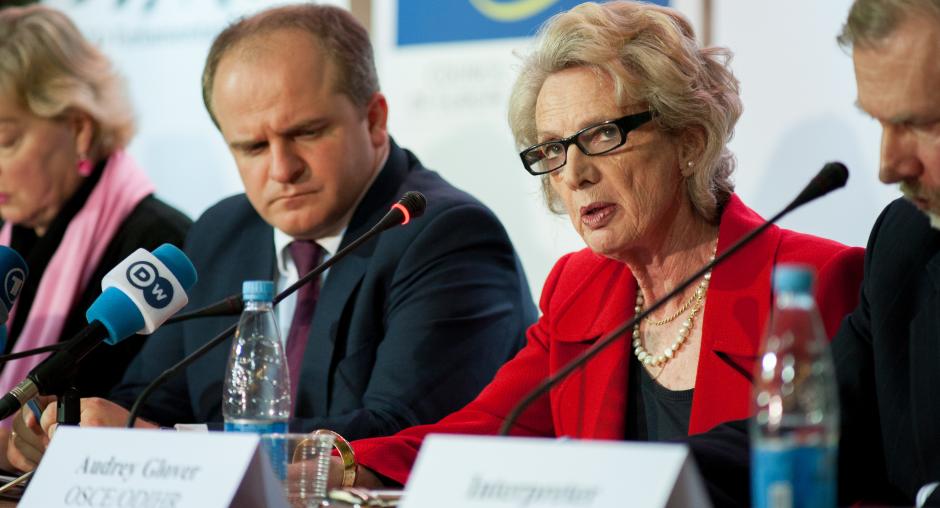Parliamentary Elections, 28 October 2012

Type:
Country:
Mission at a glance
- Head of Mission: Dame Audrey Glover (United Kingdom)
- 20 core team experts from 14 participating States, based in Kyiv
- 90 long-term observers, deployed throughout the country
- 600 short-term observers requested from OSCE participating States
Mission schedule
- 12 September: Opening press conference
- 17 September: Arrival of long-term observers
- 18 September: Briefing of long-term observers
- 19 September: Deployment of long-term observers across the country
- 23 October: Arrival of short-term observers
- 24-25 October: Briefing of short-term observers
- 25-26 October: Deployment of short-term observers
- 28 October: Election day
- 29 October: Press conference on preliminary findings and conclusions
- 1 November: Departure of short-term observers
- 10 November: Departure of long-term observers
- 15 November: Departure of the core team
Background
The Ukrainian parliament is elected for five years and consists of 450 members. Under the re-introduced mixed electoral system, half of the parliament will be elected proportionally from political party lists and half in single mandate constituencies with a simple majority vote.
The OSCE/ODIHR last observed the parliamentary elections in Ukraine in 2007 and presidential elections in 2010.
ODIHR has also issued a joint opinion on the “Draft Law on Election of People’s Deputies of Ukraine”, together with the Venice Commission of the Council of Europe.
Long-term Observation
On 19 March 2012, the Ministry of Foreign Affairs of Ukraine invited the OSCE Office for Democratic Institutions and Human Rights (OSCE/ODIHR) to observe the 28 October parliamentary elections. The OSCE/ODIHR undertook a Needs Assessment Mission (NAM) to Ukraine from 22 to 25 May 2012. Based on the findings of the NAM and in accordance with its mandate, the OSCE/ODIHR has deployed an Election Observation Mission (EOM) for these elections.
The OSCE/ODIHR EOM, headed by Dame Audrey Glover (United Kingdom), started its work in Ukraine on 12 September. The EOM has a core team of 20 international staff at the head office in Kyiv, drawn from 14 OSCE participating States. Ninety long-term observers are expected to arrive in the country by 17 September and will be deployed in teams of two throughout the regions.
The mission will assess the entire election process in terms of its compliance with OSCE commitments and other international standards for democratic elections, as well as national legislation. Observers will follow campaign activities, the work of the election administration and relevant state bodies, implementation of the legislative framework, and the resolution of election disputes. As part of the observation, the EOM will conduct comprehensive monitoring of the media.
Short-term Observation
ODIHR will request the secondment of 600 short-term observers from OSCE participating States for election day. Short-term observers will be deployed in teams of two throughout the country to monitor the opening of polling stations, voting, the counting of ballots, and the tabulation of results at all levels.
For election day observation, the OSCE/ODIHR will join efforts with a delegation of the OSCE Parliamentary Assembly and other parliamentary partners. The OSCE Chairperson-in-Office has appointed Ms. Walburga Habsburg Douglas, Vice President of the OSCE Parliamentary Assembly, as Special Co-ordinator to lead the short-term OSCE observer mission.
The day after the election, the election observation mission will issue a statement of preliminary findings and conclusions. A final report on the observation of the entire electoral process will be issued approximately eight weeks after the end of the electoral process.
